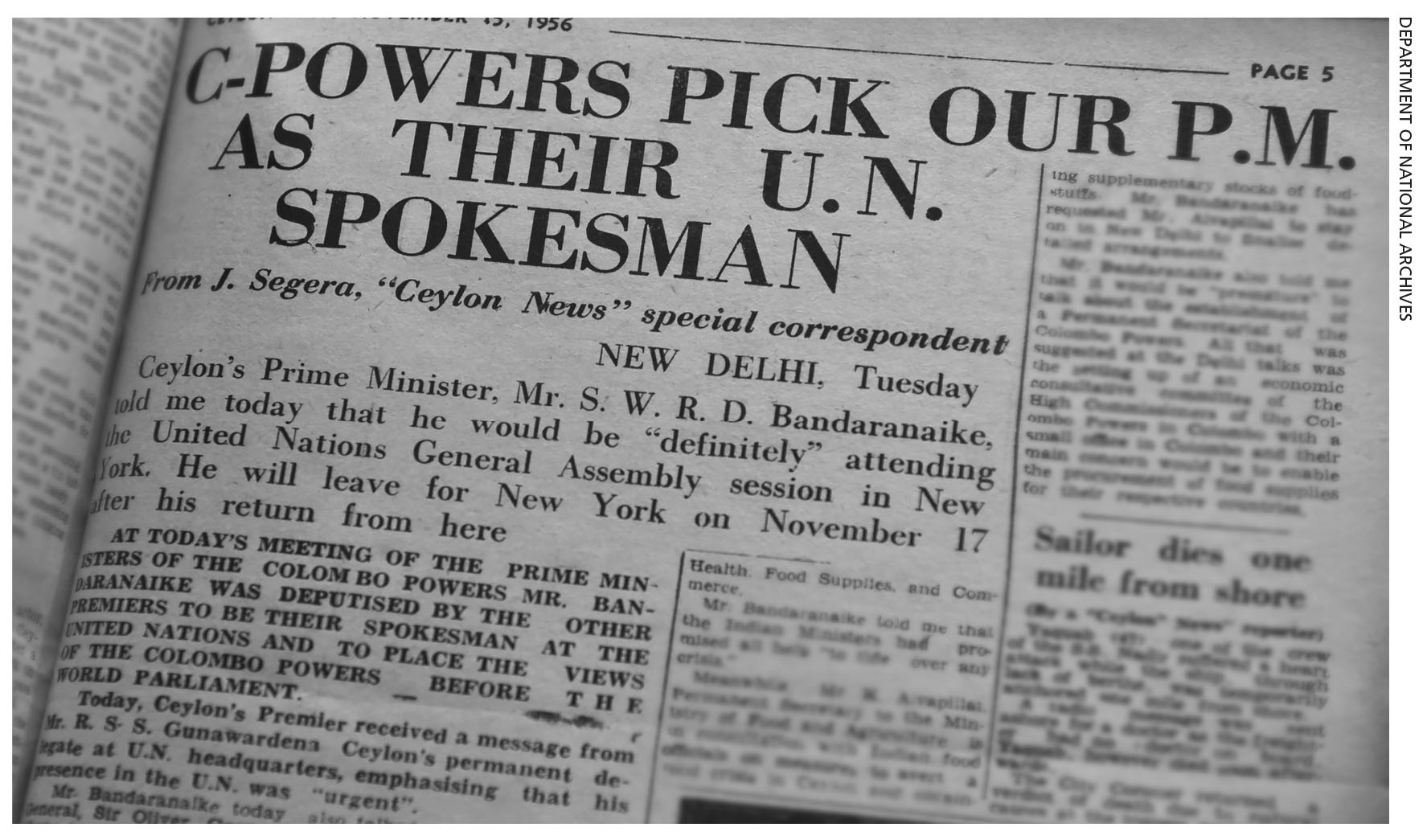1956
Ceylon Stands Tall at the United Nations
A premier’s silver tongue earns encomia
A country’s measure is not always the sum of its parts; nor is that nation’s standing proportionate to the power of its people, purse or output. Often, a single brilliant individual stands head and shoulders above his peers, representing the potential of an entire island race to punch above its weight in matters international.
It may not be too much of an exaggeration to suggest that in Prime Minister Solomon West Ridgeway Dias Bandaranaike, there was precisely such a person.
He was born to wealth and privilege, educated at establishments both at home and abroad that were the provinces of the then elite, and possessed a razor-sharp intellect.
‘SWRD’ – as he’s widely known – was a shining star in the constellation of South Asian politicians who stood out in their time.
His adroit management of the perilous waters of heated global diplomacy at a time when the Cold War was raging with a vengeance the world over brought him more than nominal acknowledgment at home – feats that were feted by the naming of the country’s premier international airport after its prime minister – a nod to the canny manner in which SWRD managed to outmanoeuvre the British in terms of sidestepping their foreign policy directives.
When his eloquent speech in the UN at its 11th General Assembly made international headlines in November 1956, no one in savvy diplomatic circles was very surprised that this silver-tongued orator had put Ceylon firmly on the map of sovereign nations that were charting their own course in a radically polarised global milieu. He orated: “My country is a weak one, a small one and a poor one; but I venture to think that today, particularly in an organisation such as this, the service that a country can render – that a member can render – is not to be measured alone by the size of that country, its population, its power or its strength. This is an organisation that expressed itself most effectively by bringing to bear a certain moral force: the collective moral force and decency of human beings.”
These and other ideas articulated with courage and yet, a smidgen of glibness, underlined Bandaranaike’s prescient contribution to the concepts of peaceful negotiation, nonalignment, nuclear nonproliferation and disarmament in a dangerously arming world to come…
When his eloquent speech in the UN at its 11th General Assembly made international headlines in November 1956, no one in savvy diplomatic circles was very surprised




